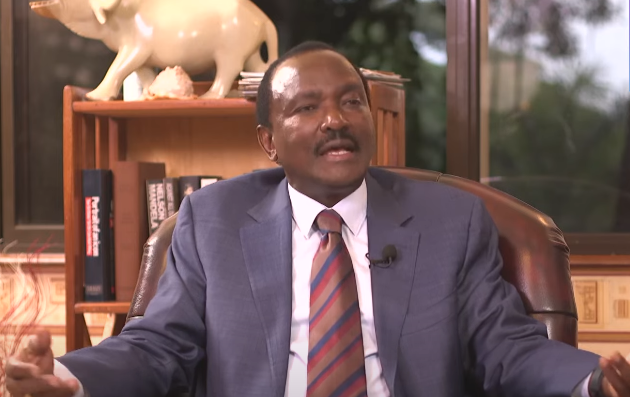Wiper leader Kalonzo Musyoka has vowed that, if elected president in 2027, he would issue an executive order to abolish the housing levy, which he claims has disproportionately burdened salaried Kenyans.
Currently, salaried Kenyans face a heavy tax burden,
including a 1.5 per cent deduction from their gross pay for the Housing Levy and a
2.75 per cent deduction for health insurance.
Additionally, an increase in National Social Security Fund (NSSF) contributions is expected by the end of February.
Kalonzo stated that the Housing Levy is impoverishing more than 3 million Kenyans in formal employment and causing widespread suffering.
He claimed the tax was unfairly imposed.
“When we take over, the first executive order I will sign is to scrap the housing levy,” Kalonzo said.
The former Vice President also raised concerns about transparency in the allocation of construction tenders for affordable housing projects.
Kalonzo also emphasized the need to ease the tax burden on
employed Kenyans, allowing them to enjoy their hard-earned salaries.
“We will restore the dignity of the payslip. Many workers are struggling with huge mortgages and loans, yet they are still paying the housing levy,” he stated.
The issue of payslip deductions is shaping up to be a key campaign topic ahead of the 2027 elections, with opposition leaders rallying formal sector employees against the levies.
On Monday, former Deputy President Rigathi Gachagua also pledged to abolish these deductions if his camp wins the next election.
“Once our government is sworn in, the housing levy will be abolished to restore the dignity of the payslip,” Gachagua declared.
He also criticized Central Organization of Trade Unions (COTU) Secretary-General Francis Atwoli for remaining silent instead of defending workers from excessive taxation.
“Kenyans are struggling more than ever, yet even major workers' unions have joined the government’s ‘praise and worship’ team. People are being choked by NSSF deductions, yet all they do is sing praises,” Gachagua said.
However, Atwoli dismissed the claims that salaried workers would significantly influence the 2027 elections.
“The idea that formal sector employees can determine the outcome depends on which workers you’re talking about. Politics in Kenya is not issue-based—ethnicity plays a major role,” Atwoli stated.


